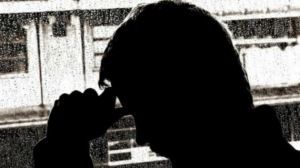News
Danish criminals more likely to be treated for mental illness than in Sweden
This article is more than 7 years old.
Over 4,000 Danes were treated instead of punished last year

Paedophiles are often vilified by society rather than helped (photo: Pixabay)
According to new figures from the Danish regions, Danish criminals are almost four times as likely to receive mental treatment, as opposed to being punished, than their Swedish counterparts.
In 2016, 4,062 Danes received treatment instead of being punished because according to the law they were deemed to be insane at the moment of the crime.
In Sweden, where the population is more than double Denmark’s, the figure was around 2,000 criminals – 20 per 100,000 residents, compared to Denmark’s 74.
“I’d like to think that we looked into the area – whether it the right path to have so many mental examinations and so many forensic psychology patients,” Mette Brandt-Christensen, a clinical head with the mental health services in the Capital Region, told DR Nyheder.
“The development has got a life of its own. We can’t know if this has been the intent.”
READ MORE: Minister: Criminals should lose rights to their children
2002 ruling
Brandt-Christensen went on to say that the Danish law on the subject, which stems from the 1970s, should be looked into to see if it functions optimally.
The number of criminals treated for mental illness has shot up in recent years – in 2001 there were only 1,445 cases.
The sharp rise is, among other things, down to the state making it clear in 2002 that courts must investigate whether there is a need for psychological treatment instead of standard punishment if the charged individual in mentally-ill. This is due to an increase in diagnoses such as PTSD and ADHD.
Scandinavian deviance
The many treatment rulings are also down to how the courts convict the psychologically-ill in Denmark compared to their Scandinavian neighbours. In Denmark there are a number of areas in which it takes less to be treated for mental illness instead of going behind bars.
One major difference is that in Denmark a mentally-ill person can be entered into treatment if they commit burglary and lesser crimes that would yield a fine.
But in Sweden and Norway the crimes have to be more serious and at least equate a prison sentence before treatment is even considered. In Norway you have to be psychotic to avoid prison time, while psychologically-ill criminals in Sweden can in certain situations be given prison sentences.










































